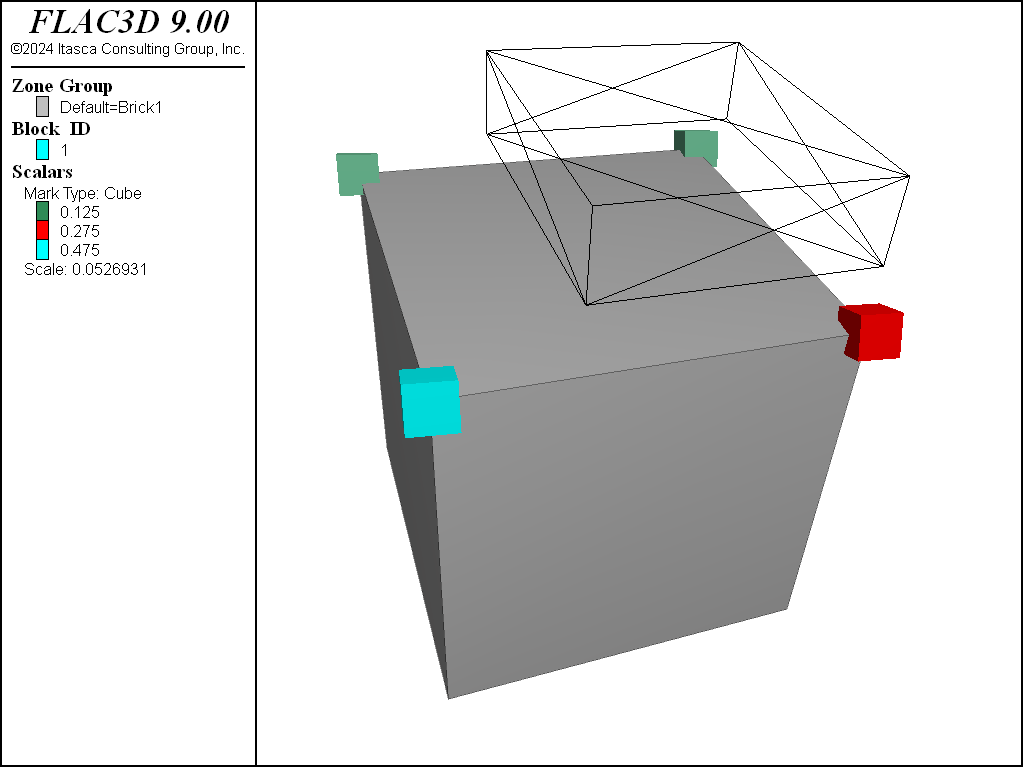Formulation
The zone block coupling works by identifying 3DEC block gridpoints and FLAC3D zone faces at the same location in space, and then passing gridpoint velocities from FLAC3D to 3DEC and vertex forces from 3DEC to FLAC3D. To minimize confusion, 3DEC block gridpoints will be called vertices for the rest of this discussion.
It is up to the user to identify these coupling regions. This is done by assigning group names and then using the command zone block create with the keywords zone-face-group and block-gp-group.
When a block vertex lies on a zone face, the three or four FLAC3D gridpoints that make up the face are identified and weights are calculated for passing velocities from the gridpoints to the vertices and for passing forces from the vertices to the gridpoints. An example is shown in the figure below.

Figure 1: Example 3DEC block on top of a FLAC3D zone. FLAC3D gridpoints are shown as cubes contoured by the weighting used to pass information to and from the 3DEC vertex on the zone face.
The relevant entries in the calculation cycle sequence occurs as follows (see program list cycle-sequence for the full cycle sequence in FLAC3D):
Cycle Point
Cycle Operation
40
Forces calculated in FLAC3D
41.5
Forces calculated in 3DEC
42
Vertex velocities calculated in 3DEC
59
Forces from 3DEC passed to FLAC3D
60
Gridpoint velocities calculated in FLAC3D
61
FLAC3D velocities passed to 3DEC
The table shows that velocities are passed to 3DEC at the end of a cycle, so therefore their effect will not be felt until the next cycle.
Other things to be aware of when using this coupling scheme:
Each 3DEC vertex is associated with only one (1) FLAC3D face. So if the FLAC3D mesh is not contiguous (for example, if there are interfaces or zone joints) then a 3DEC vertex at the boundary between two non-contiguous faces will affect only one of the faces, so some unexpected results may be observed.
Very small blocks/zones should be avoided on the 3DEC/FLAC3D boundary. Large velocities may be to the 3DEC boundary and this can be problem when very small block edges are present - even without coupling.
To run a coupled example, FLAC3D must be used. 3DEC does not load the FLAC3D zone module by default.
| Was this helpful? ... | Itasca Software © 2024, Itasca | Updated: Nov 12, 2025 |
